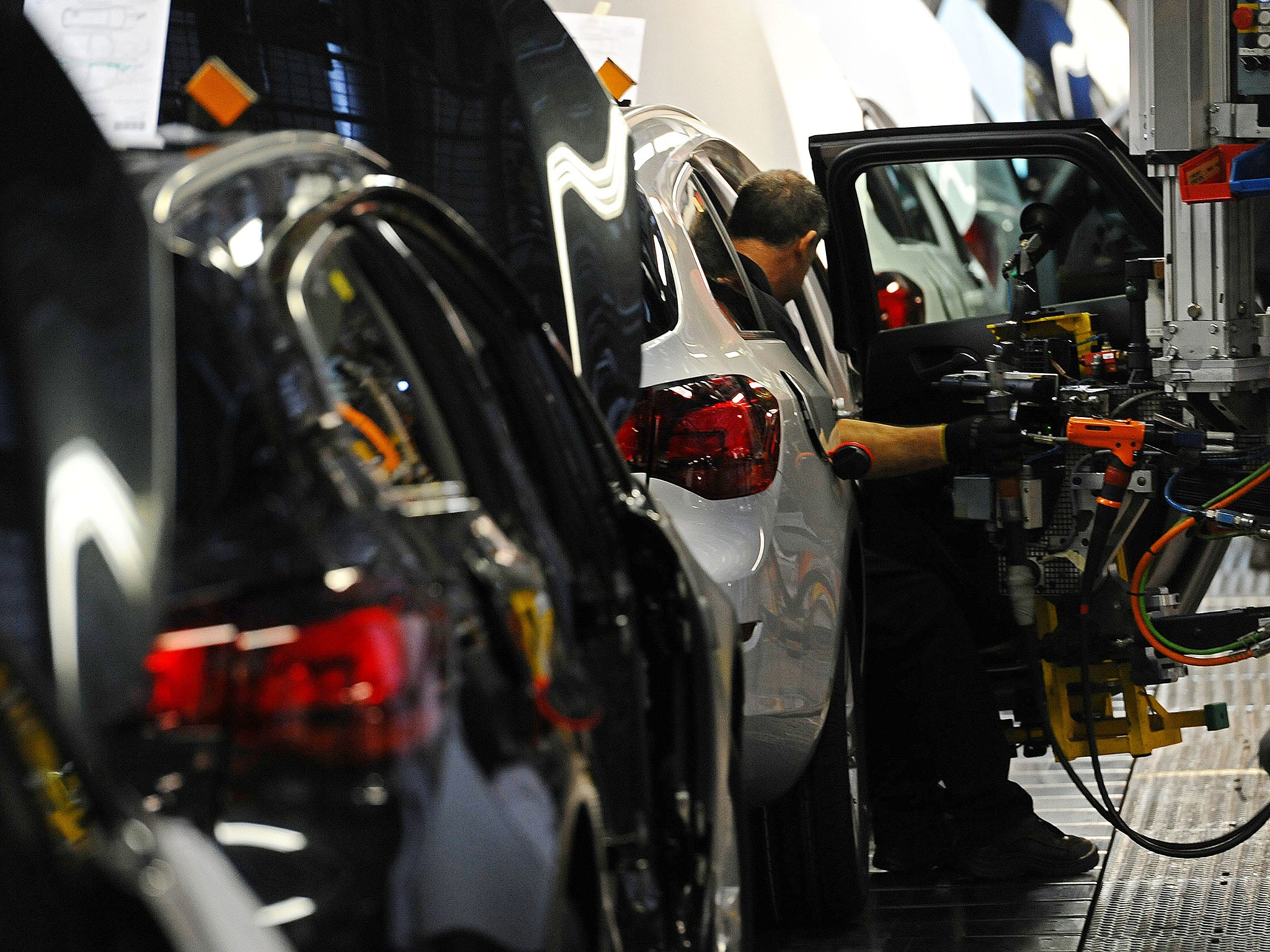British interests in car manufacturing are under threat – and Johnson’s Tories won’t stand up for them
Warnings about hard Brexit already threaten the future of the Ellesmere Port plant where the Astra is made, writes James Moore


I imagine the tension at Vauxhall’s Ellesmere Port’s car plant is at something close to boiling point this morning. Fiat Chrysler and France’s PSA, which counts Peugeot, Citroen, and Vauxhall Opel among its brands, confirmed what’s been in the wind for several days now.
They’re pursuing a 50-50 merger in a bid to create what will be the world’s fourth largest car maker by sales. The impact of it will be felt across the industry.
It’s a truly enormous deal, which will create a company with revenues of €170bn (£146bn) and an operating profit of more than €11bn. The motivations for doing it aren’t hard to discern.
Car makers are under enormous pressure. They are working against the backdrop of a decidedly shaky global economy beset with trade tensions and other woes. Demand for their product has been lacklustre.
They also need to invest heavily in technology and the development of electric vehicles to lower their contribution to the climate crisis.
Nil premium mergers are usually a tough sell when it comes to investors and the perception of this one is that it favours Fiat, which abandoned talks with PSA’s big rival Renault just five months ago. PSA’s shares were notably weak in response to the announcement.
To counter investors’ scepticism, the pair are dangling €3.7bn of synergies, corporate speak for cost-cutting, in front of their noses.
These, we are told, will be “derived principally from a more efficient allocation of resources for large-scale investments in vehicle platforms, powertrain and technology and from the enhanced purchasing capability inherent in the combined group’s new scale”. They are not “based on any plant closures”.
Stating that represents a canny move by the two prospective partners at the outset of what will be a long process. This deal has numerous hurdles to clear, political ones among them. Plant closures have the potential to land you in the midst of a firestorm so it makes sense to leave them out of the equation if possible.
So no need for the several thousand employers the pair have in the UK to worry? Especially those in the northwest? Don’t be fooled.
Ellesmere Port, where the Astra is made, is regularly hailed as one of Europe’s most efficient car plants.
But there’s a fly in the ointment and you already know what it is: Brexit. Boris Johnson’s version of it is harder than Theresa May’s. Her deal, dismal as it was, was at least constructed with manufacturers’ interests in mind (services, the biggest part of the UK economy, weren’t so lucky but that’s another issue). His is harder still. Some of the more extreme MPs in his party still see it as a route to no deal.
PSA boss Carlos Tavares is slated to head the combined group. Tavares has already warned that if Brexit serves to make the Ellesmere Port unprofitable, production will be switched to southern Europe.
“I would prefer to put it [the Astra car] in Ellesmere Port but if the conditions are bad and I cannot make it profitable, then I have to protect the rest of the company,” he told the FT earlier this year.
He added: “We need visibility on customs for parts coming from continental Europe or from the rest of the world, and we need visibility on the customs for cars coming out of the UK to continental Europe.”
A merger will inevitably involve Tavares and his colleagues taking a hard look at what they have if and when it completes. Plant closures may not contribute to that initial €3.7bn but it doesn’t mean that they are off the table.
The French government, which retains a stake in PSA, will kick up an almighty fuss if Tavares gives any indication that he’s looking to do anything nasty there. Ditto the Italians.
British Tories such as Boris Johnson are fond of waving flags, stomping up and down and shouting about British interests.
But as Britain’s unemployed steel workers would probably testify, they’re rather less good at defending them when they’re under threat. And make no mistake, his Brexit policy and this merger means that they are.
Join our commenting forum
Join thought-provoking conversations, follow other Independent readers and see their replies
Comments